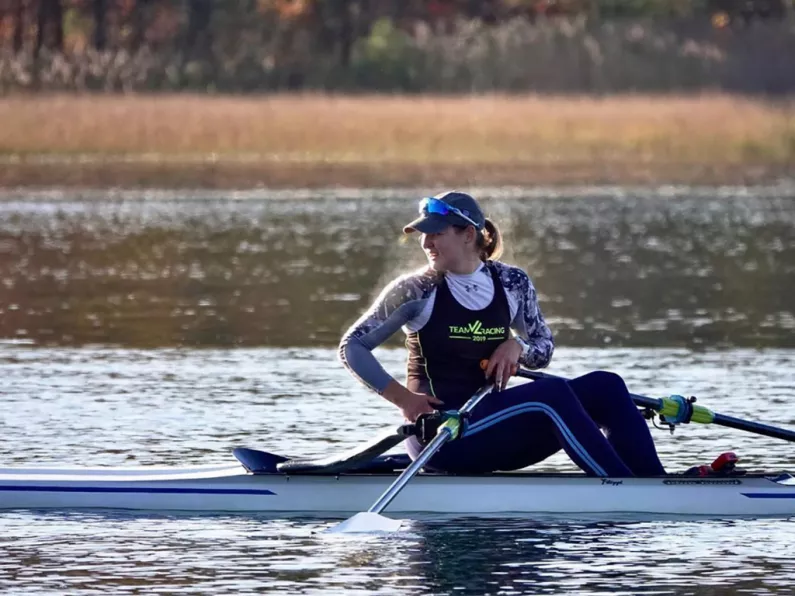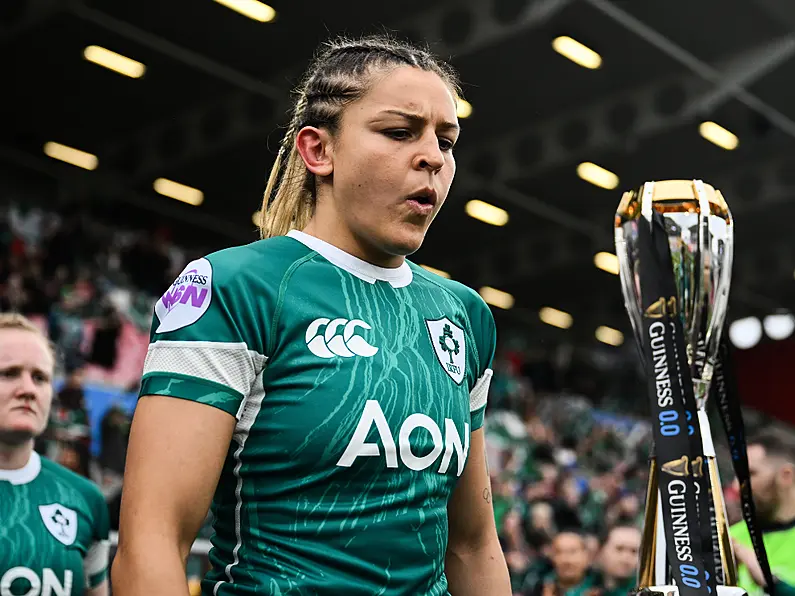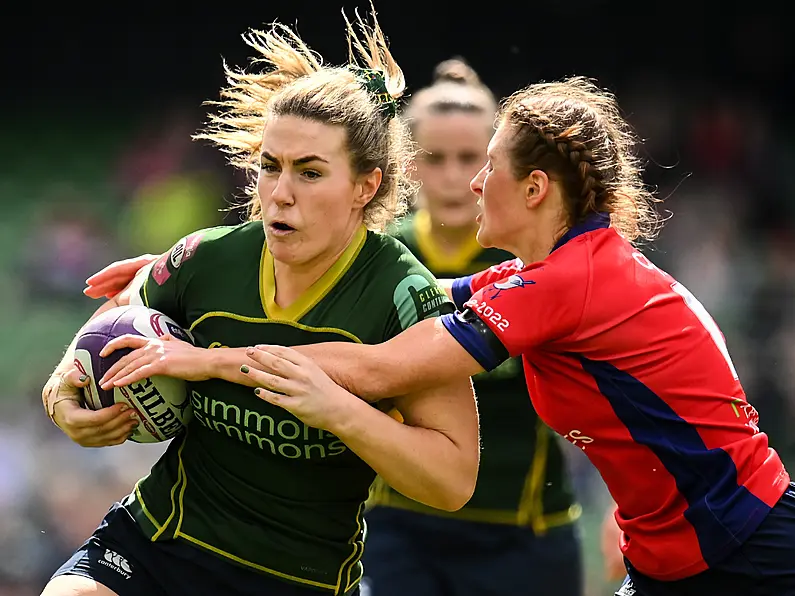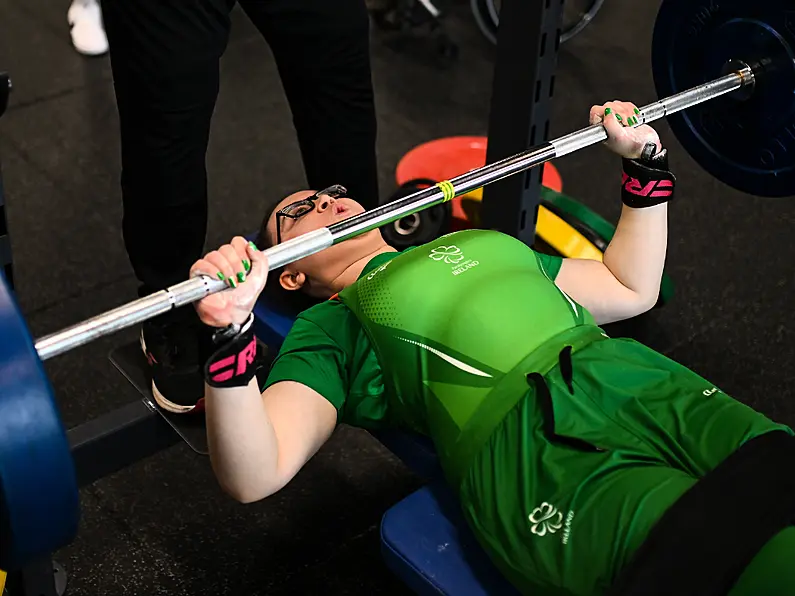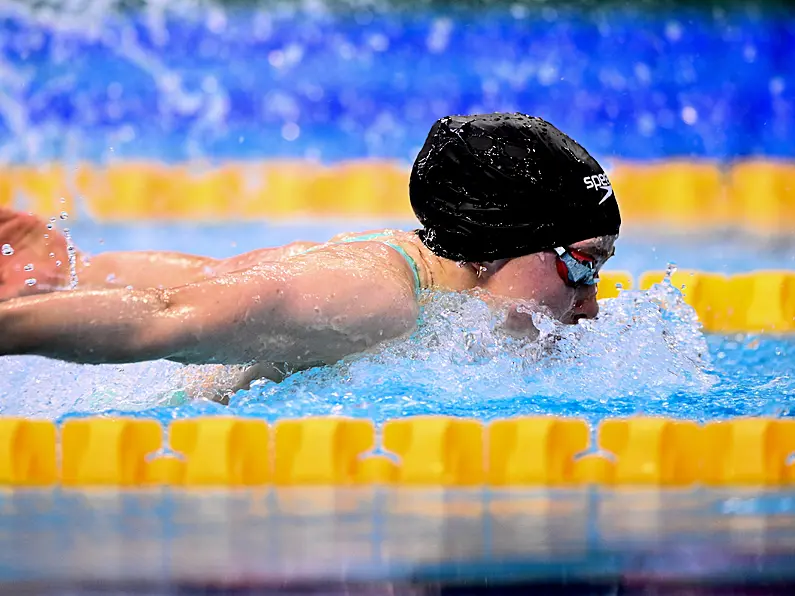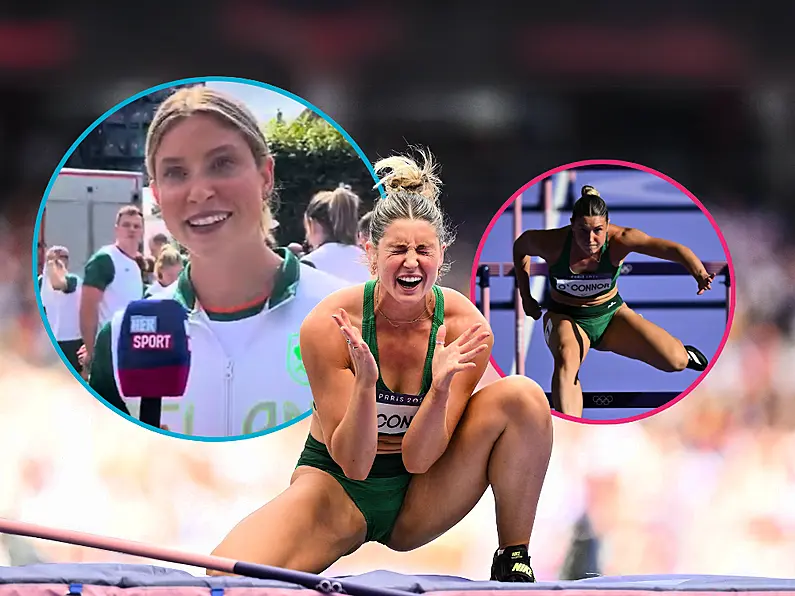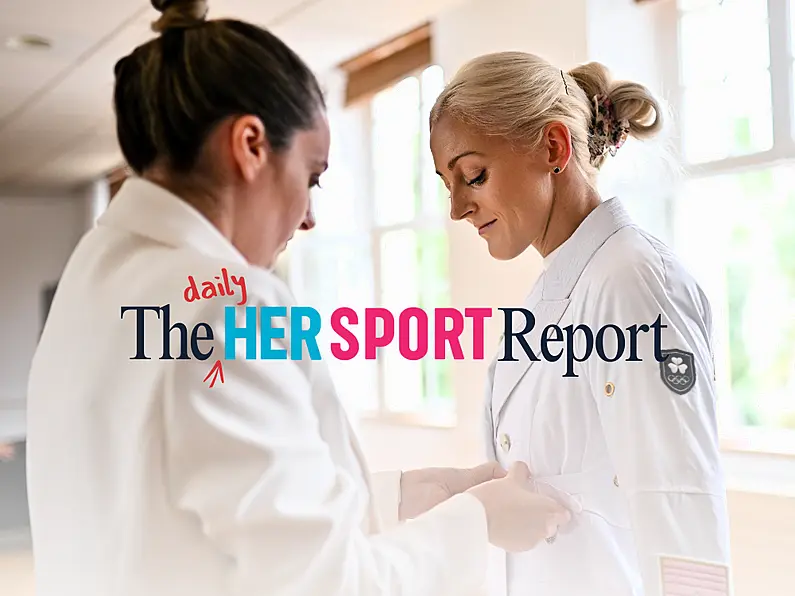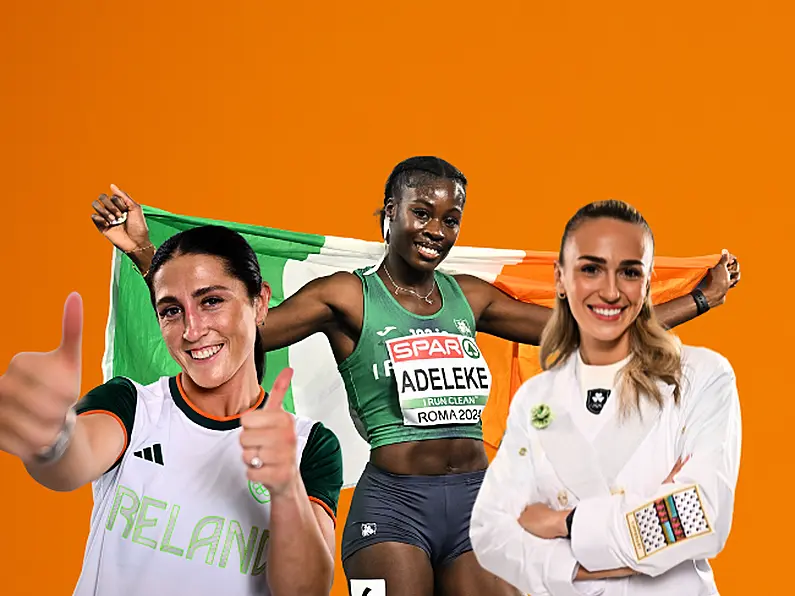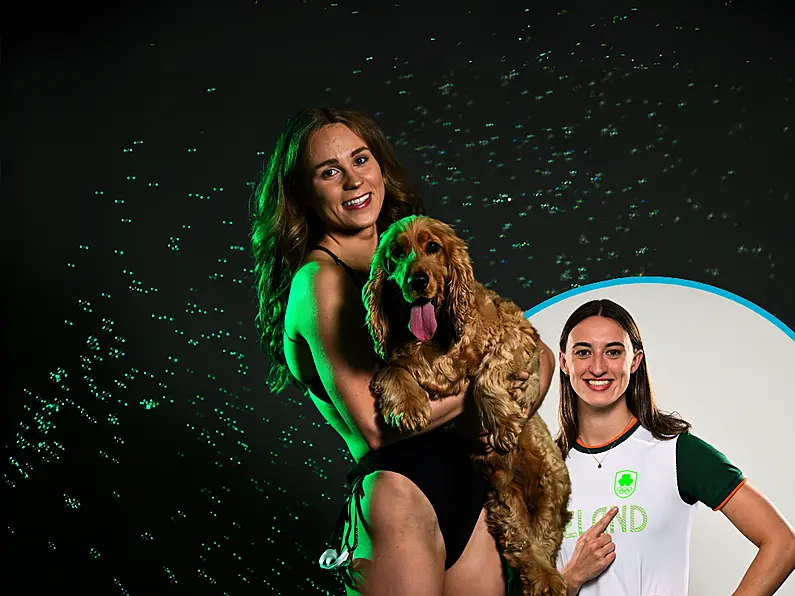Many successful athletes spend their entire lives training for their sport. Charlotte Buck, however, began her training at the age of 19, just one year before joining the Columbia University rowing team. Six years later, she has shaken up the competition and is working towards securing a spot at the Olympics.
Following high school, Buck was due to attend an Ivy league school and the summer before starting she picked up the sport of rowing. She had decided to join Columbia’s rowing team primarily to make friends when starting at university and thought her build and competitive nature would be right for the sport. She contacted her local club, Rockland Rowing, and trained with the master’s team during the summer before her freshman year. They were rowing 5k a day and she believed she was fully prepared to keep up with the team at Columbia. Most of the athletes on the Columbia rowing team would have rowed previously and Buck used the summer before to try and get up to speed. Upon arriving, however, the workload and experience on the squad surprised her.
At the time, Buck was unaware of how influential rowing would be in her life. She did not feel that a lack of experience held her back in any way and ended up racing in the third varsity eight boat by the end of the first fall semester. She was named to the First Team All-Region for the 2016-2017 season, was invited to compete at the U23 National selection camp in 2017 and earned a bronze medal at the World University Championships in Shanghai, China.
“A lot of people say you can learn the basics in two to three months, and it will take you the rest of your life to make it perfect,” she said.
During her junior year, Buck was elected captain and held the position until graduation. She was one of the fastest rowers on the team and they knew she would be a great role model. Columbia is a difficult school to succeed in and having that position of leadership on top of her academics was a challenge. She wanted to be a support system for the younger athletes and set an example for the team. She had a good relationship with the head coach and knew she could be a conduit for the freshman who might have been intimidated.
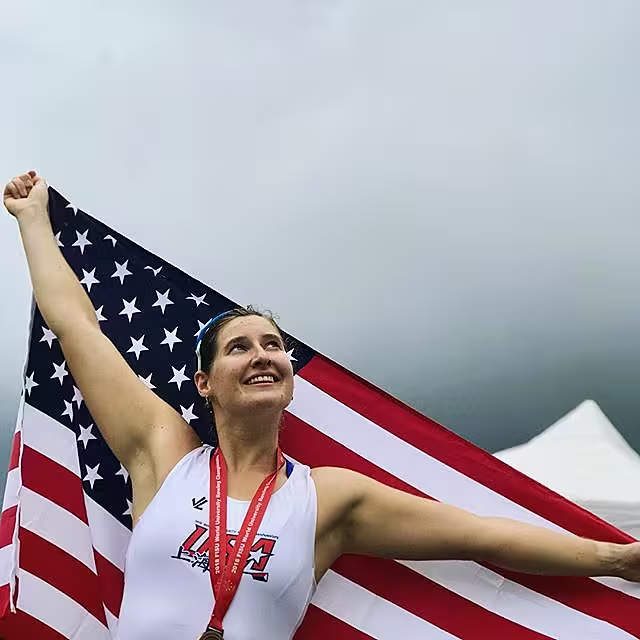
Photo Credit: Charlotte Buck via Instagram @charbuckwild
Buck graduated from Columbia University in 2018 with a bachelor’s degree in biological science and started her preparations for graduate school. After taking the MCAT, she decided to put medicine on hold to pursue her dreams of becoming an Olympic rower. Her mom was a doctor and didn't go straight to medical school after graduating college, so she was one of her greatest supporters through that decision. To compensate for the costs of her sport, Buck became a junior coach at her old club, Rockland Rowing.
“It's not really a sport that pays,” she said, “but I am ok with that.”
While training at the New York Athletic Club, she had to change from sweep rowing to sculling as it was the only option to pursue her dream. Sweep rowing involves the use of one oar per athlete opposed to two in sculling. Along with the change, Buck also transitioned to rowing in a single scull and had to adapt to the new technique of using an extra oar and rowing by herself.
“It took quite a while for me to actually use the speed I gained on land and through sweep rowing, and transition it to a single,” she said.
Six months passed before Buck felt comfortable in her strides and strategy. She said that her former coach, Nick Dawe, was a big motivator and was a large part of her success in sculling. She had only sculled two to five times before starting at New York Athletic Club, but knew it was an important step for her to take in her rowing career. She believes that singles are essential for an athlete in developing their boat feel and keeps them accountable. If they are having a bad day, they know where the blame lies, but can also reap the benefits of their success.

In January, Buck travelled to New Zealand to train with Dawe and the West End Rowing Club in preparation for Olympic trials. A mix of recent high school graduates and older athletes, she learnt a lot and gained great experience while in New Zealand. She noticed that their technical proficiency was much higher. Although they may not have been the biggest or strongest athletes she had seen, Buck said they moved the boat better. She raced in a quadruple sculls (quad) with three other female athletes and managed to win at both the North Island Championships and the New Zealand National Championships with very little preparation. Buck also competed in the elite category in singles at National’s and ended in the premier B final race. She was lined up against some of the best rowers in the world including Emma Twigg who picked up silver at the 2019 World Championships, behind Ireland's Sanita Puspure. The fact that she was able to keep up with the pace of her competitors for even part of the race validated the progress she had made in sculling and inspires her when moving forward.
“It was a bit intimidating because in some of my races I was the only one who didn't have a medal from worlds,” she said, “But it was also inspiring.”

Photo Credit: Charlotte Buck via Instagram @charbuckwild
This summer, Buck competed in the Rowers Choice Global Challenge, a six week online international rowing competition. She felt she needed to have specific goals each week to keep her motivated to train during quarantine. After signing up, she found out she would be competing against Olena Buryak, Carling Zeeman and Kara Kohler who are notable rowing stars.
The competition consisted of seven rounds following a single elimination format. Each round had a different distance to be completed on a static Concept 2 ergometer. Buck said that the formatting was difficult as most rowers are used to competing in specific distances and specifically train/plan their race according to that. The workouts were posted at the beginning of each week, and athletes had until Thursday at midnight to submit a video recording. The time differences made it near impossible for athletes to compete together, so everyone was expected to complete the workouts on their own without knowing the pace of their competitors.
“It made it difficult to go out and not know what the other person was going to pull,” she said.
Buck was successful in the competition and found herself competing in the finals against the fastest indoor rower in the world. Olena Burak is the Indoor World Champion, World Urban Games winner and the World Record holder for the 2000m. Although competing against Burak was an immense amount of pressure, she said that she couldn't lose by coming in second against a world record holder. Her sister helped by being her coxswain and supporter, pushing her to fight to the finish because in this competition you did not where you stood against the other athletes.
“I definitely felt like I was the underdog, but I also felt that way in the round of eight and in the round of four, and I got there.” she said, “So I just had to trust in my ability.”
The final race determined the winner based on the most meters rowed in the USA W8+ world record time of 5:54. Basically, Burak and Buck had to row as many meters possible on the rowing machine in 5 minutes and 54 seconds. At the start, Burak went out fast and sprinted as long as she could hold her pace. Buck found Burak’s strategy incredibly ambitious and approached it in a more traditional way. She took the start hard, paced the middle, and sprinted towards the end to bring down the split. She ended the race with a total of 1,793 meters on her ergometer (rowing machine), just shy of Burak’s 1,807 meters.
“It’s been a really nice validation for all of the work I have been doing in quarantine and for the past year and a half,” Buck said.

Coming in second, and surpassing some U.S. National Team rowers, helped her take the next step in fulfilling her dreams of competing in the Olympics. She had trialed with the National Team in the past but did not make the cut until this month. She has just quit her coaching job and is preparing to move to Princeton to train with the team. Although she says it is possible but unlikely she will be selected for the Tokyo Olympic Games, she says that making it to the training centre is just one step closer to achieving her dreams with her main focus on the Olympics in Paris 2024. It has been a long and hard journey to make it to the National Team since her debut in the World University Games, and she will be training hard to make it to the Olympics one day.
“It's exciting, but I know it's going to be so difficult mentally and physically,” Buck said, “I think I am up for the challenge.”
Subscribe to Her Sport’s YouTube channel for more videos, follow us on Instagram, like us on Facebook or follow us on Twitter for the latest sporting news and content.
